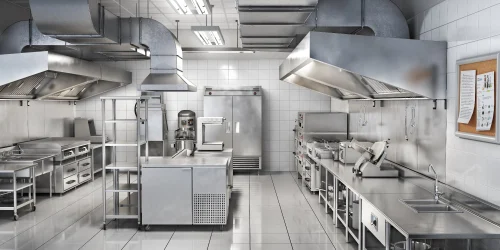Choosing the right commercial kitchen equipment is a significant decision for any food business. Whether you’re opening a new restaurant, upgrading your current setup, or expanding your catering service, your equipment is the backbone of your operation. But with so many options out there, how do you make sure you’re getting what’s right for your business? Asking the right questions before you commit can save you time, money, and future headaches.
1. What Are My Menu Needs?
Before anything else, think about your menu. What dishes will you serve most often, and what equipment is essential to prepare them? For example, a pizzeria will need high-quality ovens, while a café may prioritize coffee machines and refrigeration. A bakery, on the other hand, might require reliable mixers, ovens, and high-quality cream chargers (learn more here) to create light, airy whipped cream for pastries and desserts. It’s easy to get caught up in fancy gadgets, but if they don’t align with your core offerings, they’ll just gather dust. Take some time to map out your workflow to ensure the equipment you choose fits seamlessly.
2. What’s My Budget?
Commercial kitchen equipment from leaders like KEA is a long-term investment, but it’s essential to set a realistic budget. Are you looking to buy brand-new equipment or consider refurbished options? While the upfront cost for new equipment might be higher, it often comes with warranties and the latest features. On the other hand, second-hand equipment can save money, but it’s important to thoroughly inspect it to avoid costly repairs down the line. Know your budget—and stick to it.
3. How Much Space Do I Have?
Kitchen space is valuable real estate, and no one wants a cramped work environment. Measure your kitchen layout carefully, considering doorways, storage, and working areas. Oversized equipment might offer more capacity, but if it creates bottlenecks, it’s not worth it. Modular or multifunctional equipment could be a good solution if you’re tight on space.
4. Is It Energy Efficient?
Rising energy bills can eat into your profits, so choosing energy-efficient equipment is more important than ever. Look for models with high energy ratings or eco-friendly certifications. Not only will these save you money in the long run, but they’re also better for the environment—a win-win if you’re aiming for sustainability. Plus, energy-efficient equipment often operates more quietly, which is a bonus in a bustling kitchen.
5. Does It Meet Health and Safety Standards?
Compliance with local health and safety regulations is non-negotiable in the food industry. Before purchasing any equipment, ensure it meets the necessary standards for hygiene, durability, and safety. Equipment that’s easy to clean and maintain can help you stay compliant while reducing stress during inspections. Also, check for safety features like temperature controls and proper ventilation.
6. What Kind of Warranty and Support Is Available?
When something breaks down in a commercial kitchen, it’s not just frustrating—it can halt your entire operation. That’s why warranty and after-sales support should be top of mind. Does the manufacturer offer a solid warranty? Is there reliable customer service for repairs or replacement parts? Don’t overlook this detail; it could save you major downtime later on.
7. Can My Team Use It Easily?
Even the best equipment won’t add value if your team struggles to use it. Look for user-friendly designs that match the skill levels of your staff. Training new hires on overly complex machinery can cost time, so simplicity is often the better choice. If the equipment is straightforward and efficient, your team will thank you—and your kitchen will run more smoothly.
8. What’s the Maintenance Like?
Commercial kitchen equipment works hard, and regular maintenance is crucial for keeping it in top shape. Before buying, ask yourself: how easy is it to clean and maintain? Equipment with removable parts or built-in cleaning features can save hours of effort. Additionally, research the availability and cost of replacement parts. No one wants to be stuck with equipment that’s impossible to fix when something goes wrong.
9. How Scalable Is It?
Think beyond your current needs. Will this equipment still meet your demands if your business grows? For instance, if you’re considering a fridge or freezer, opt for a model with a bit more capacity than you currently need. Scaling your business shouldn’t mean buying entirely new equipment again. Choosing versatile, durable equipment now can save you money as your operation expands.
10. Am I Buying from a Reputable Supplier?
Finally, where you buy your equipment matters. A reputable supplier offers more than just a transaction—they provide expertise, guidance, and support. Take the time to research your options, read reviews, and ask other professionals for recommendations. A trustworthy supplier can also help you navigate warranties, maintenance, and compliance questions, making your purchase smoother and more reliable.
Bringing It All Together
Investing in the right commercial kitchen equipment isn’t just about choosing the biggest or most expensive items—it’s about understanding your needs, planning ahead, and thinking practically. By asking the right questions and doing your research, you’ll set your kitchen up for success, whether it’s day one or year ten.
Remember, your equipment is the foundation of your business, so make decisions with care and confidence. What’s your next step in building the perfect kitchen?
